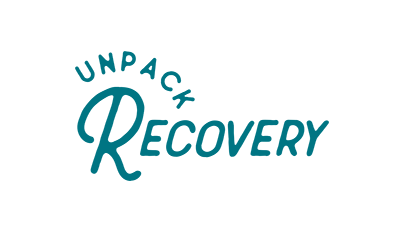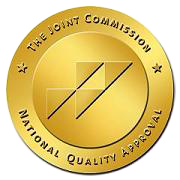Suicide Prevention Month: A Comprehensive Guide of Suicide Prevention Resources
Each year, September is recognized as Suicide Prevention Month, a time when communities come together to raise awareness about the importance of mental health and suicide prevention. This also serves as an important reminder that conversations about mental health are not only essential, they can be lifesaving.
Suicide Prevention Resources
As we strive to foster greater awareness, here is a comprehensive guide of helplines, organizations and programs that provide crucial assistance, guidance and hope -- while also offering insights into the power of community and connection. In recognizing the unique challenges faced by historically marginalized communities, many of these organizations are breaking down barriers for and uplifting LGBTQ+ and BIPOC communities.
Hotlines and Helplines
- National Suicide Prevention Lifeline: 988
- Crisis Text Line: Text HOME to 741741
- For Spanish: Text AYUDA to 741741 and/or 442-AYUDAME in WhatsApp
- Trans Lifeline: 877-565-8860
- Stop Soldier Suicide Hotline: 844-317-1136
- U.S. Substance Abuse and Mental Health Services Administration (SAMHSA): 1-800-662-HELP (4357)
National Organizations
- National Alliance on Mental Illness (NAMI): Resources including local mental health hotlines, education and support groups. Some resources vary by chapter location.
- Helpline can be reached Monday-Friday, 10 a.m.-10 p.m. ET.
- Call 1-800-950-NAMI (6264)
- Text “Helpline” to 62640
- Email [email protected]
- Helpline can be reached Monday-Friday, 10 a.m.-10 p.m. ET.
- Depression and Bipolar Support Alliance: Resources including education, support groups and a wellness toolbox. Some resources vary by chapter location.
- American Association of Suicidology: Resources include training and certification programs for clinicians, a research program and a “Healing After Suicide Loss” conference.
- Hope For The Day: Mental health and proactive suicide prevention programming for individuals, groups and workplaces.
- American Foundation for Suicide Prevention: Resources surround advocacy, education and connecting community members via awareness walks and suicide loss support groups.
- Substance Abuse and Mental Health Services Administration: Free resources and information to help prevent suicide and A Journey Toward Health and Hope: Your Handbook for Recovery After a Suicide Attempt
- Suicide Prevention Resource Center: The only federally supported resource center devoted to the National Strategy for Suicide Prevention, they offer consultation, training and resources.
- 1N5: Provides resources for suicide prevention and mental wellness, including the Reach Out app, mental health toolkits, free QPR training sessions and resources for the Cincinnati, Ohio area and beyond.
- Only7Seconds: Inspires intentional connection by empowering people and equipping partners through established programs and resources to combat the epidemic of loneliness. The Only7Seconds “I Know Lonely” project collects stories of loneliness and hope in an effort to build understanding of the diverse, universal experience of loneliness. With their direct-to-school programming, Only7Seconds works to build empathy in younger generations.
Suicide Prevention Resources for Veterans and Military
- Stop Soldier Suicide: Mental health support, case management for the military and veteran community.
- Crisis Hotline: 844-317-1136
- Once A Soldier: Financial aid and financial crisis support after a veteran suicide.
Suicide Prevention Resources for Native and Indigenous Individuals
- We R Native: A comprehensive health resource for Native youths, by Native youths, with content and stories on mental health topics, including suicide.
- Crisis Text Line: Native communities can text NATIVE or INDIGENOUS to 741741.
- Indian Health Service: Federally run mental health programs.
- Some tribes run their own behavioral health programs so please look at your tribe’s website and search for “mental health services.”
- Navajo Nation: https://ndoh.navajo-nsn.gov/COVID-19/Mental-Health-Resources
- Cherokee Nation: https://health.cherokee.org/services-and-programs/behavioral-health/
- Choctaw Nation of Oklahoma: https://www.choctawnation.com/services/behavioral-health/
Suicide Prevention Resources for Teens and Young Adults
- Active Minds: Provides education, research and advocacy programming for young adults ages 14–25.
- The JED Foundation: Offers programming rooted in their Comprehensive Approach to Mental Health Promotion and Suicide Prevention for Colleges and Universities and for High Schools, including the four-year Jed Campus program, Jed High School, Mental Health Is Health initiative, and Set To Go program to support the school-to-college or school-to-career transition.
- Grant Halliburton Foundation: Provides education via free events for students, educators, parents and professionals covering topics like suicide prevention, bullying, and building resiliency. Their mental health support search engine and hotline at HereForTexas.com helps Texans find mental health support such as counseling or intensive treatment.
- Robbie’s Hope: An uprising of teens to help other teens. They’ve made it their mission to stop the suicide epidemic that’s taking the lives of their friends. They do this through their teen ambassador program, creation of handbooks for adults on how to talk with their teens and technology, and their HOPEfull Conversations podcast with executive director and co-founder Kari Eckert.
- Second Wind Fund: Second Wind Fund has built an innovative program in Colorado that matches children and youths, age 19 and younger, who are at risk for suicide and do not have the means or adequate insurance for necessary mental health treatment, with licensed therapists in their local communities or potentially via teletherapy. Sometimes even finding the right provider can be a barrier. For children and teens who have Medicaid, Child Health Plan Plus or private insurance that adequately covers mental health treatment, Second Wind Fund can help narrow down a list of therapists who meet the child or teen’s needs, bypassing confusing health care systems.
- Born This Way Foundation: Resources include Channel Kindness to learn about acts of kindness, bravery and resilience; a free “Be There” certification course to learn how to support others’ and your own mental health, teen mental health first-aid trainings and the Please Stay pledge.
Suicide Prevention Resources for LGBTQ+ Individuals
- SAGE: Advocacy and resources to improve the lives of LGBTQ+ elders. Resources include a Long-Term Care Equality Index, training for care-providing institutes, a digital financial wellness platform and the National Resource Center on LGBTQ+ Aging.
- Trans Lifeline: Resources include a hotline where you can speak to a trans person (whether or not you are in crisis), a resource library and microgrants.
- Trans Lifeline: 877-565-8860
Suicide Prevention Resources for Women
- 2020 Mom: Policy center working to close the gaps in maternal mental health through providing resources and training, participating in research, impacting federal and state policy, and more.
- She Recovers: Offers resources to empower woman-identifying individuals who are seeking recovery, including virtual and local community support for a variety of identities and professions.
Suicide Prevention Resources for People of Color
- Kevin Berthia Foundation: The Kevin Berthia Foundation was created to give a voice of hope to individuals who suffer in silence with undiagnosed or diagnosed mental health conditions.
- Black Mental Wellness: The mission of Black Mental Wellness is to provide access to evidence-based information and resources about mental health and behavioral health topics from a Black perspective, to highlight and increase the diversity of mental health professionals and to decrease the mental health stigma in the Black community.
- Mental Health America’s 2023 BIPOC Mental Health Toolkit: This theme of this year’s toolkit is “Culture, Community, and Connection.“
Suicide Prevention Resources for Athletes
- Morgan’s Message: Provides an ambassador program to high school and college students designed to create mental health awareness and eliminate mental health stigma in the student athlete community. Hosts the Mental Matchup podcast.
- Madison Holleran Foundation: Provides resources to high school seniors and college freshmen on suicide prevention. Carli Bushoven, Madison’s sister, speaks across the country in an effort to destigmatize mental health and create suicide prevention awareness.
- The Kevin Love Fund (KLF): Through a unique combination of education and advocacy, KLF provides an engaging curriculum for students to aid them in their social-emotional learning.
Suicide Prevention Resources for the Elderly Community
- SAGE: Advocacy and resources to improve the lives LGBTQ+ elders. Resources include a Long-Term Care Equality Index, training for care-providing institutes, a digital financial wellness platform and the National Resource Center on LGBTQ+ Aging.
- SAMHSA: Provides resources and toolkits for suicide prevention in the elderly community, as well as webinars and guides for building community around elderly populations.
- American Association for Geriatric Psychiatry (AAGP): Works to advance the mental health of older adults through professional education, research and advocacy. They provide resources for caregivers as well as the elderly community.
Suicide Prevention Resources for Artists
- Art With Impact: Hosts art-based workshops and events meant to promote mental wellness by creating space for young people to learn more about mental health and connect to a community of support.
- Breaking the Chains Foundation: Committed to the prevention of body-focused and mental well-being stigmas. Their mission is to use the power of art and expression to foster creativity, build connections and create a community in which individuals can thrive. They host in-person and online events aimed at breaking stigma related to mental health through the use of self-expression.
If you are looking for treatment to help you or a loved one manage mental health challenges, we invite you to call 877-825-8584 or fill out this form to learn more about treatment at ERC Pathlight.
Struggling with an eating disorder?
One conversation can make all the difference. Connect with us today.
Get Help NowConnect With Us



